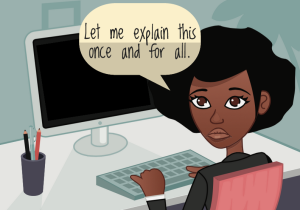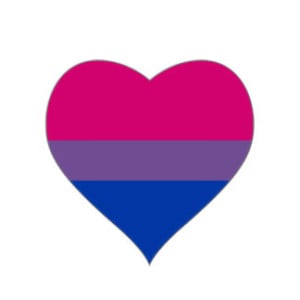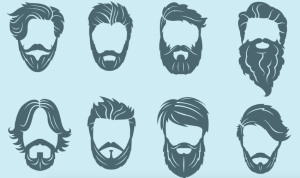This post was republished with permission from tinybuddha.com. You can find the original post here.
“The reason we struggle with insecurity is because we compare our behind-the-scenes with everyone else’s highlight reel.” —Steve Furtick
We all have certain triggers that can cause our confidence to take a sudden nosedive.
For some, it’s a trip to the gym. If you’re self-conscious of your body, watching fit people strut their stuff in their tightest fitting gym clothes likely has you over analyzing your every body part.
For others, it may be a certain individual — a family member, friend, or enemy — that, for whatever reason, leaves them with the dreaded feeling that they just aren’t enough.
We all know the gut wrenching feeling that arises when we see or hear something that immediately has us second guessing our appearance, personality, or skill set.
Unfortunately, social media provides us with numerous platforms that help to quickly trigger that unpleasant self-disdain.
Facebook recently reminded me of just how powerful a determinant it is to my confidence level.
I found myself comparing all aspects of my life, both internal and external, to a person I had never met. She was a stranger in every sense of the word, and yet somehow, her profile page caused me to question my accomplishments, appearance, and even personality traits.
I didn’t realize just how illogical this was until I explained it to someone, and, now as I type, I’m reminded even further.
Regardless of how illogical these comparisons may be, our emotional responses to such images can be so strong that they completely overpower our sense of logic.
The reality is, people are constantly showcasing the best aspects of their life onto social media.
The arrival of a new baby and a recent trip to the Caribbean are both ideal picture-posting occasions. But do these same people post photos of 2am feedings or lost luggage? Not often, because that wouldn’t show them in an ideal light, but it would provide a sense of reality.
Reality is what is lost on social media. We emphasize the best versions of ourselves instead of the real versions.
Life can be hard, ugly, and downright depressing at times. But those likely aren’t the adjectives most of us would use to describe the photos we post onto our accounts.
The feeling of lack and dissatisfaction that we feel when scrolling through our newsfeed often results from comparing our true reality to our “friends’” idealized, perfectly Instagramed realities.
We are using the same scale to measure two entirely different realities.
However, we fail to step back and recognize just how wildly unfair and unrealistic these comparisons actually are.
So how can we stop ourselves from making them?
1. Reduce Your Time on Social Media
This can be a challenge since we live in a culture that puts such a high value on social media outlets. But that doesn’t mean it’s impossible.
Allow yourself five to ten minutes a day to check your social media accounts and then be done with it. Especially avoid looking at profiles of people who trigger thoughts of comparison. You have nothing to gain in doing so besides anxiety and sadness.
2. Redirect Your Focus on the Things That Really Matter
When you direct your attention toward the real world, you have less time and energy to direct toward meaningless activities such as social comparisons.
Focus on a high-energy work out at the gym or finishing a book you’ve been putting off. Immerse yourself in activities that leave you feeling better for having engaged in them (versus Facebooking, which leaves you wishing you hadn’t).
Make a list of activities and then schedule them onto a calendar. Since we often spend time on social media when we have little else going on, having scheduled plans will reduce the time we are sitting idle.
3. Assess Where Those Negative Comparisons Are Stemming From
As unpleasant as these comparisons can feel, they can serve a positive purpose in that they inform us of an area of our lives that may benefit from some improvement. The incident served as a reminder that I want to be secure enough in who I am and where I am in life that I don’t feel the need to measure it in comparison to anyone else (least of all, a stranger).
After my strong reaction to a stranger’s Facebook profile, I decided to work on developing a stronger sense of confidence and self-worth. I’ve done this in a number of different ways such as:
- Putting a higher value on my relationships. I have amazing friends and family, but I admit that I often take them for granted. I’ve tried to become more present in my interactions with them, as well as in encounters with complete strangers.
- Valuing my time more. In the past, I’ve been much more cognizant and respectful of others’ time than my own. I’m practicing putting my needs first and learning to accept that it is okay to do.
- Doing more of what I love. Sounds simple, but I’ve really made an effort to go on quiet walks with my dog more or allow myself an hour to read a book. Doing things simply because I like to do them has given me an increasing amount of self-value.
- Eating well and moving. I make sure to put my body in motion for at least thirty minutes a day (even if it’s just walking the dog), and I eat small, healthy meals throughout the day so I don’t find myself snacking mindlessly on junk. Putting a higher value on my body by eating clean and getting exercise has naturally given me a higher sense of self worth.
So, next time you make an unfair comparison, instead of allowing it to make you feel poorly about yourself, view it as an opportunity for a little self-evaluating.
Ultimately, social comparisons aren’t indicative of what others have that you don’t, but rather what you already have but aren’t quite aware of yet.
[do_widget id=”text-101″]
Emily Holland, M.A. is a freelance writer and Certified Health Coach. Her curiosity for people, personal growth, and healthy living led to a Masters in Psychology and a certification in Health Coaching. She is constantly researching news ways to live a healthier, happier lifestyle and is passionate about sharing her insights through writing. Visit Emily at curiouscoffeedrinker.wordpress.com.
Search our 3000+ articles!
Read our articles about:
Our online racial justice training
Used by hundreds of universities, non-profits, and businesses.
Click to learn more
Most Read Articles
- « Previous
- 1
- …
- 30
- 31
- 32




















